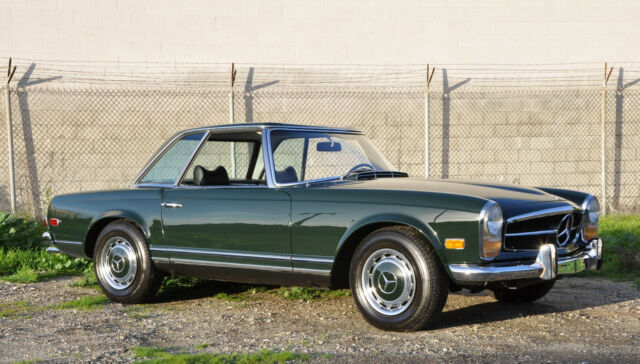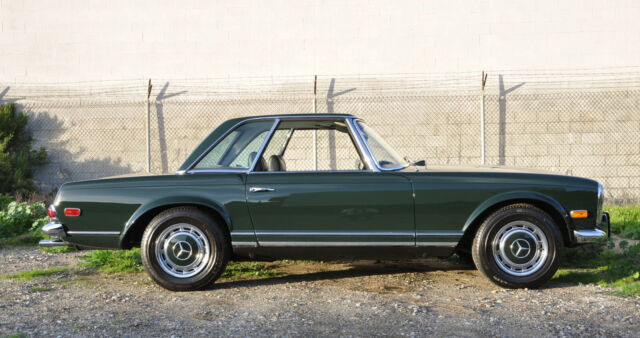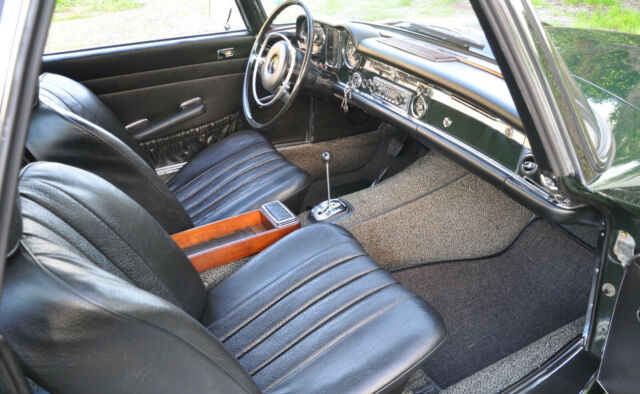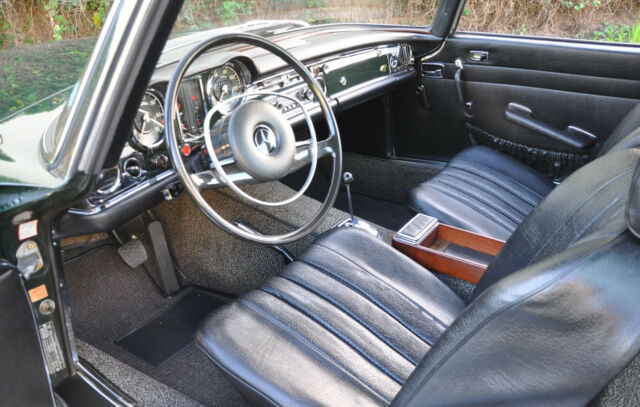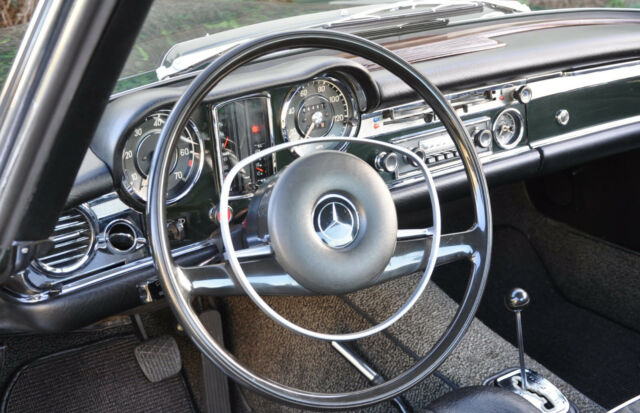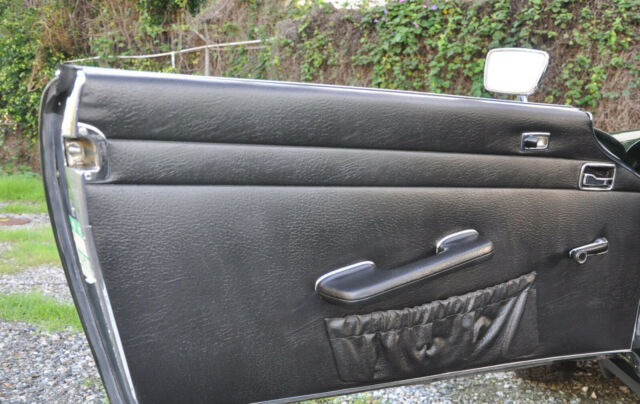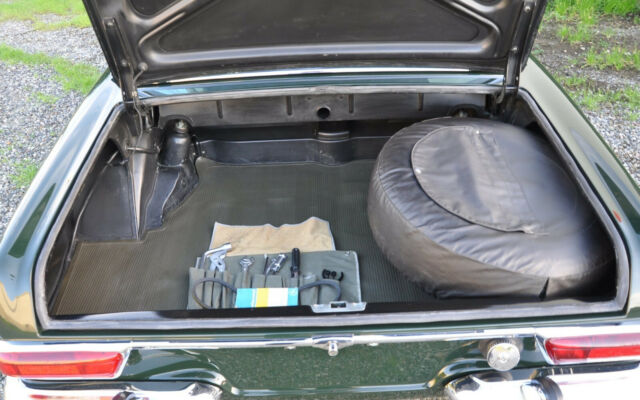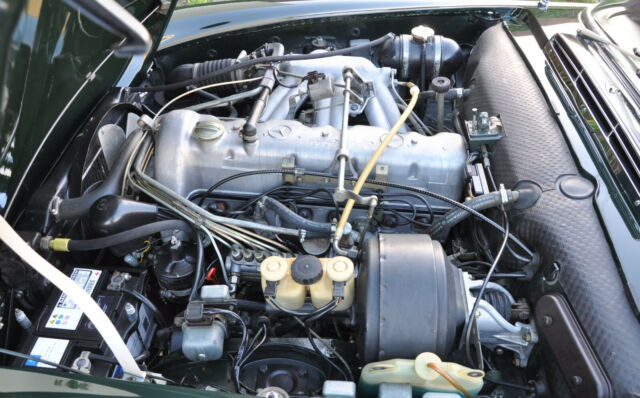Mercedes-Benz 280SL Roadster
- Location: Canton, Mississippi, United States
- Condition: Used
- Make: Mercedes-Benz
- Model: SL-Class
- Type: Convertible
- Year: 1969
- Mileage: 144441
- VIN: 11304412009843
- Color: Green
- Fuel: Gasoline
- Transmission: Automatic
- Drive type: RWD
- Interior color: Black
- Drive side: Left-hand drive
- Vehicle Title: Clear
1969 Mercedes-Benz SL-Class Description
The 280 SL was introduced in December 1967 and continued in production through 23 February 1971, when the W 113 was replaced by its successor, the entirely new and substantially heavier R107 350 SL. Over the years, the W 113 evolved from a sports car into a comfortable grand tourer, and US models were by then usually equipped with the 4-speed automatic transmission and air conditioning. Manual transmission models came with the standard 4-speed or the optional ZF 5-speed, which was ordered only 882 times and thus is a highly sought-after original option today. In Europe, manual transmissions without air conditioning were still the predominant choice. Of the 23,885 280 SLs produced, more than half were sold in the US.The main change was an upgrade to the 2,778 cc (2.8 L) M130 engine with 170 PS (130 kW; 170 hp) maximum power and 180 lb·ft (244 N·m) maximum torque, which finally gave the W 113 adequate power. The performance improvement was achieved by increasing bore by 4.5 mm (0.2 in), which stretched the limits of the M180 block, and required pairwise cylinder casts without cooling water passages. This mandated an oil-cooler, which was fitted vertically next to the radiator. Each engine was now bench-tested for two hours prior to being fitted, so their power specification was guaranteed at last.
The M130 marked the final evolution of Mercedes-Benz' venerable SOHC M180 inline-six, before it was superseded by the entirely new DOHC M110 inline-six introduced with R107 1974 European 280 SL models. For some time, it was also used in the W 109 300 S-Class, where it retired the expensive 3 liter M189 alloy inline-six.
North American models have a number of subtle differences, the most obvious one being the distinctive "sealed beam" bulb headlights required in the US versus the Bosch Lichteinheit headlights for the rest of the world. 1970 US models also acquired amber turn-signal lenses on the rear lights, later than most other countries.
Other differences of the North American models include imperial gauges, chrome bumper guards, side reflectors (illuminated from 1970), lower rear-axle ratios for faster acceleration yet lower top speeds, and no "single-side" parking lights. US market 280 SL engines required emission control modifications, including "softer" valve timings, a reduced compression ratio and a modified injection pump, which reduced power from 170 PS (125 kW; 168 hp) to 160 PS (118 kW; 158 hp). In the US, automatic transmission, air conditioning, and white wall tires were much more popular than elsewhere.
More Mercedes-Benz classic cars for sale
 1971 Mercedes Benz 280SL Roadster
1971 Mercedes Benz 280SL Roadster
 1979 Mercedes-Benz 280SL Roadster
1979 Mercedes-Benz 280SL Roadster
 1969 Mercedes Benz 280SL Roadster
1969 Mercedes Benz 280SL Roadster
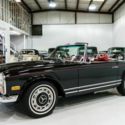 1970 Mercedes-Benz 280SL Roadster
1970 Mercedes-Benz 280SL Roadster
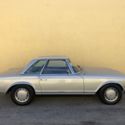 1971 MERCEDES-BENZ PAGODA ROADSTER 280SL
1971 MERCEDES-BENZ PAGODA ROADSTER 280SL
 CLASSIC CAR MERCEDES BENZ 280SL 1985 ROADSTER
CLASSIC CAR MERCEDES BENZ 280SL 1985 ROADSTER
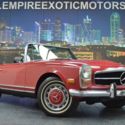 Restored 1971 Mercedes-Benz 280SL Roadster 8K
Restored 1971 Mercedes-Benz 280SL Roadster 8K
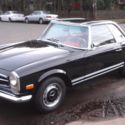 1968 Mercedes-Benz 280SL SL-Class Roadster 4 speed
1968 Mercedes-Benz 280SL SL-Class Roadster 4 speed
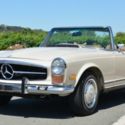 Original 1970 Mercedes Benz 280SL Pagoda Roadster
Original 1970 Mercedes Benz 280SL Pagoda Roadster
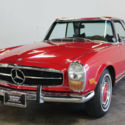 1970 Mercedes Benz 280SL 35345 Miles Red Roadster
1970 Mercedes Benz 280SL 35345 Miles Red Roadster
 1971 Mercedes Benz 280SL Roadster
1971 Mercedes Benz 280SL Roadster
Year: 1971
Mileage: 65,700
Mileage: 65,700
 1979 Mercedes-Benz 280SL Roadster
1979 Mercedes-Benz 280SL Roadster
Year: 1979
Mileage: 95,000
Mileage: 95,000
 1969 Mercedes Benz 280SL Roadster
1969 Mercedes Benz 280SL Roadster
Year: 1969
Mileage: 77,076
Mileage: 77,076
 1970 Mercedes-Benz 280SL Roadster
1970 Mercedes-Benz 280SL Roadster
Year: 1970
Mileage: 37480
Mileage: 37480
 1971 MERCEDES-BENZ PAGODA ROADSTER 280SL
1971 MERCEDES-BENZ PAGODA ROADSTER 280SL
Year: 1971
Mileage: n/a
Mileage: n/a
 CLASSIC CAR MERCEDES BENZ 280SL 1985 ROADSTER
CLASSIC CAR MERCEDES BENZ 280SL 1985 ROADSTER
Year: 1985
Mileage: 199,999
Mileage: 199,999
 Restored 1971 Mercedes-Benz 280SL Roadster 8K
Restored 1971 Mercedes-Benz 280SL Roadster 8K
Year: 1971
Mileage: 8,716
Mileage: 8,716
 1968 Mercedes-Benz 280SL SL-Class Roadster 4 speed
1968 Mercedes-Benz 280SL SL-Class Roadster 4 speed
Year: 1968
Mileage: 140,868
Mileage: 140,868
 Original 1970 Mercedes Benz 280SL Pagoda Roadster
Original 1970 Mercedes Benz 280SL Pagoda Roadster
Year: 1970
Mileage: 27850
Mileage: 27850
 1970 Mercedes Benz 280SL 35345 Miles Red Roadster
1970 Mercedes Benz 280SL 35345 Miles Red Roadster
Year: 1970
Mileage: 35345
Mileage: 35345
